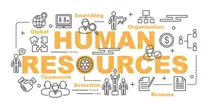Top #10 Interview Questions to Select the Best HR Manager
Are you hiring an HR manager? Depending on your company's size and stage, you might need a general role like Head of People or a specialized one like Payroll and Benefits Manager. Regardless, it's crucial to design an interview that assesses candidates effectively. This article from Aniday will provide you 10 effective interview questions to ask when hiring for HR manager roles. Let's get started!

The Definition of HR Manager
The HR Manager is the person who oversee and manage the daily operations of the HR department. This includes conducting staff recruitment and interviews, managing payroll, benefits, and leave administration, and ensuring the enforcement of company policies and procedures.
The Importance of an HR Manager
Human resource managers assume a pivotal role in shaping an organization's culture. They serve as intermediaries between a company's leadership and its workforce, facilitating effective communication, addressing disputes, and offering counsel to executives on workplace conduct policies.
Additionally, these managers collaborate with senior executives to oversee talent management and ensure that employees are delivering optimal value. They may also establish training programs and workshops as needed to enhance employee engagement, tackle workplace disparities, and foster the acquisition of essential skills for improved performance and success.

Key Skills and Qualities for Success in the Role of HR Manager
To excel in the position of HR Manager, several essential skills and qualities are imperative
-
HR managers demonstrate a blend of robust communication skills, strategic thinking, and adept problem-solving capabilities to align HR efforts with the broader business strategy.
-
Exhibit empathy and emotional intelligence, enabling them to establish meaningful connections with employees, thus fostering strong relationships.
-
Strong leadership skills and a commitment to ethical conduct are of utmost importance as they are responsible for leading and overseeing a team of HR professionals.
10 insightful HR Manager interview questions
Here are 10 question you can use to assess the skills and quality of your HRM candidates
-
Can you describe your ideal onboarding process, and how would it enhance the overall hiring experience? Additionally, how does this onboarding process align with the company's business goals?
This question assesses the candidate's approach to integrating new employees into the company and aligning them with the organization's goals and objectives.
Sample answer: My ideal onboarding process encompasses a thorough orientation, mentorship initiatives, and consistent check-ins. This guarantees that new hires experience a warm welcome, gain clarity about their roles, and recognize their contributions to the company's objectives.
-
Share your approach to hiring. Where do you typically source talented job applicants and what methods do you use to attract them?
This question is significant as it conveys to the interviewer your proficiency in working with or leading teams to successfully complete projects. As an HR manager, you'll often be responsible for guiding teams and facilitating group efforts to achieve project goals.
Sample answer: I use a combination of job boards, networking events, and employee referrals. Employing technology, like applicant tracking systems, also helps streamline the process and reach a broader audience.

-
Could you provide an example of a complex HR project that you initiated and successfully led from start to finish?
Evaluating the candidate's project management capabilities and their capacity to manage intricate HR endeavors is of utmost importance.
Sample answer: I previously spearheaded the implementation of a new HRIS system, which entailed collaborating with the IT department, training employees, and migrating data. The project was successfully concluded on schedule and led to a 30% enhancement in HR efficiency.
-
As a new HR manager, what would be the first employee policy you'd draft, and why is it a top priority? How would you ensure company-wide compliance with this policy?
This question is designed to assess the candidate's comprehension of fundamental HR policies and the significance of these policies within the organization.
Sample answer: I would give top priority to crafting a thorough anti-discrimination and harassment policy. This is essential for fostering a safe and inclusive workplace. To maintain compliance, I'd conduct frequent training sessions and establish transparent reporting procedures.
-
How do you define company culture, and what strategies would you employ to preserve it as the company expands?
The cultivation and preservation of a strong company culture play a pivotal role in fostering employee satisfaction and long-term retention within the organization.
Sample answer: Company culture comprises shared values, beliefs, and practices that influence the work environment. To sustain it, I would consistently gather feedback, ensure leadership exemplifies the culture, and incorporate cultural values into the hiring and onboarding procedures.
-
What HR technology tools do you prefer, and can you recommend one system per HR function, such as applicant tracking, payroll, onboarding, and referrals?
In the contemporary landscape of HR operations, the adoption of HR technology is indispensable for ensuring efficiency and effectiveness.
Sample answer: I favor tools such as SmartRecruiter for applicant tracking, Workday for payroll, BambooHR for onboarding, and Jobvite for referrals. These platforms provide extensive functionality and seamless integration with other systems.

-
Based on your experience, which benefits or perks have proven to be most effective in driving employee satisfaction and engagement?
Employee benefits are vital for boosting both employee motivation and retention within an organization. These perks and incentives not only offer valuable support to employees but also foster their enduring dedication to the company.
Sample answer: Flexible work hours, robust health benefits, and ongoing learning opportunities typically lead to the highest satisfaction levels. In addition, consistent recognition and wellness programs also make significant contributions.
-
What methods do you employ to stay updated and maintain adherence to national labor laws, encompassing tax regulations, industrial standards, social security, and health insurance? Could you share any past experiences where you faced regulatory challenges and describe how you addressed them?
Maintaining compliance with relevant laws and regulations is of paramount importance to mitigate the risk of legal complications and ensure the smooth operation of the organization.
Sample answer: I frequently participate in HR seminars and subscribe to HR newsletters. On one occasion, a misinterpretation of a tax law resulted in minor issues, but we promptly resolved it by seeking guidance from a labor attorney and refining our procedures.
-
In your experience, what is the most effective approach for resolving conflicts between employees and upper-level management?
Conflict resolution skills are vital for HR managers, who frequently mediate and resolve workplace disputes to maintain a harmonious environment, benefiting both employee relationships and the organization's overall success.
Sample answer: Open communication is essential. I create a neutral environment for both parties to voice their concerns, and we collaborate to reach a mutually satisfactory solution, ensuring that both sides feel acknowledged and appreciated.
-
How do you handle employee feedback, particularly when it is negative or critical of company policies or leadership?
This question explores the candidate's strategy for handling feedback, particularly when it addresses delicate subjects such as company policies or leadership choices. It assesses their ability to navigate and address sensitive issues within the organization.
Sample answer: I consider feedback, be it positive or negative, as a valuable tool for personal and professional growth. When receiving constructive feedback, I prioritize making the employee feel heard and understood. Then, I assess the feedback's validity and context. If it proves constructive, I work with the relevant departments or leadership to address the concerns, maintaining transparency and open communication with the employee throughout the process.
Conclusion
In conclusion, whether you're seeking a general HR manager or a specialized role, a well-crafted interview process is vital for evaluating candidates effectively. We hope to have helped you in this endeavor by this article from Aniday that offers 10 effective interview questions to ask when hiring for HR manager roles. Goodluck with the journey to find the right HR manager for your company!
Aniday's HR Services
Headhunting Service
Find and recruit quality candidates in just 1 week! Supported by 40,000 experienced headhunters in IT, Finance, Marketing… capable of recruiting in any region.
Headhunting Service ➔Employer of Record (EOR) Service
On behalf of your business, we recruit employees and handle payroll without the need to establish a company in markets such as Vietnam, Singapore, Malaysia, India, Indonesia…
Employer of Record (EOR) Service ➔